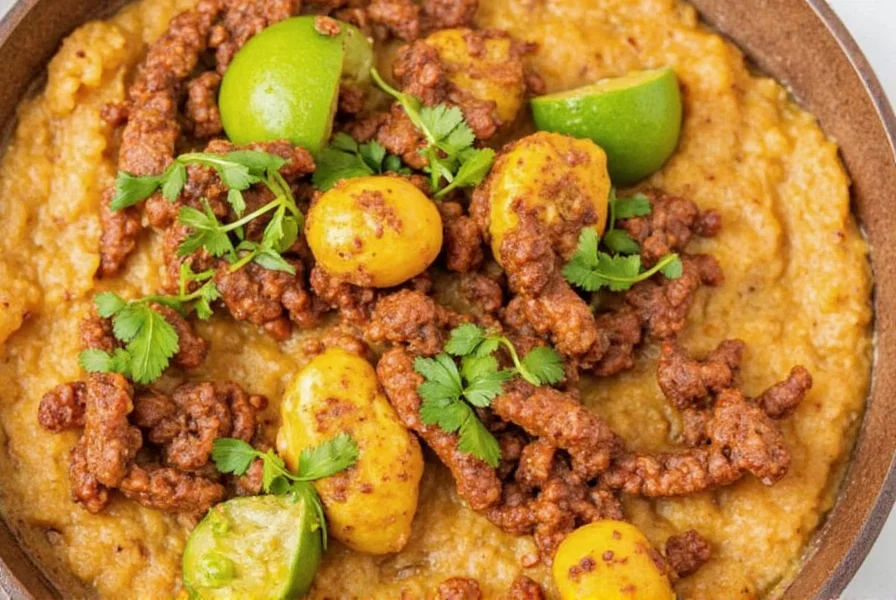When searching for turmeric indian bistro, diners typically seek authentic yet approachable Indian dining experiences that balance traditional flavors with contemporary presentation. These specialized restaurants have gained popularity for making Indian cuisine accessible to both newcomers and seasoned enthusiasts of South Asian food.
Understanding the Turmeric Indian Bistro Concept
The "turmeric" in these restaurants' names isn't merely decorative—it reflects a culinary philosophy centered around one of India's most revered spices. Turmeric, known as haldi in Hindi, has been used in Indian cooking and Ayurvedic medicine for thousands of years. Restaurants adopting this name typically highlight turmeric's earthy, slightly bitter flavor and vibrant golden color in their signature dishes.
Unlike traditional Indian restaurants that may focus exclusively on one regional cuisine, turmeric indian bistro menu highlights often feature a thoughtful selection from multiple Indian culinary traditions. You'll typically find dishes from:
- Northern India (creamy butter chicken, tandoori specialties)
- Southern India (dosa, sambar, coconut-based curries)
- Western India (Gujarati thalis, Goan seafood)
- Eastern India (Bengali fish preparations, sweets)
| Meal Period | Typical Service | Popular Dishes | Average Price Range |
|---|---|---|---|
| Lunch | Buffet style | Butter chicken, chana masala, vegetable biryani | $12-18 per person |
| Dinner | A la carte | Lamb rogan josh, paneer tikka, assorted naans | $18-28 per entree |
| Weekend Brunch | Special menu | Spiced omelets, masala dosa, mango lassi | $15-22 per person |
What Makes Turmeric Indian Bistros Stand Out
The "bistro" designation signals a deliberate departure from formal Indian dining experiences. These establishments typically feature:
Modern ambiance: While maintaining cultural authenticity through subtle design elements, turmeric indian bistro dining experience venues often incorporate contemporary decor that appeals to younger diners and business lunch crowds. Exposed brick, modern lighting fixtures, and comfortable seating create an atmosphere that's upscale yet relaxed.
Accessibility focus: Many implement thoughtful accommodations for diners with dietary restrictions. Most locations prominently feature vegetarian options at turmeric indian bistro establishments, with extensive vegan and gluten-free selections clearly marked on menus. This inclusive approach has expanded their customer base significantly.
Culinary innovation: Chefs at these establishments often reinterpret classic dishes with seasonal ingredients while maintaining authentic flavor profiles. A notable example is the turmeric-infused cocktails that have become signature offerings at many locations—blending traditional Indian flavors with modern mixology techniques.
Planning Your Visit to a Turmeric Indian Bistro
For the optimal experience at any turmeric indian bistro location and hours venue, consider these practical tips:
Reservations: While walk-ins are generally welcome during lunch, dinner reservations are recommended, especially on weekends. Many locations now offer online booking through their websites or third-party platforms. The turmeric indian bistro reservations system varies by location, so checking their specific website is advisable.
Menu navigation: Don't hesitate to ask servers about spice levels and ingredient details. Most staff receive comprehensive training about the menu and can guide you toward dishes matching your preferences. If you're new to Indian cuisine, consider ordering a tasting platter that features multiple regional specialties in smaller portions.
Signature dishes: While specific offerings vary by location, certain dishes consistently appear as best dishes at turmeric indian bistro establishments:
- Turmeric chicken tikka: Free-range chicken marinated in yogurt, turmeric, and spices, then grilled in a traditional tandoor oven
- Golden lentil dal: A creamy yellow lentil preparation simmered with turmeric, ginger, and garlic
- Saffron turmeric rice: Basmati rice infused with both saffron and turmeric, often served with nut and raisin garnish
- Mango turmeric lassi: A refreshing yogurt-based drink blending ripe mango with subtle turmeric notes

How Turmeric Indian Bistros Compare to Traditional Options
Understanding the differences between authentic indian cuisine in urban settings can help set appropriate expectations. While traditional Indian restaurants often specialize in one regional cuisine, turmeric-named bistros typically offer a curated selection from multiple regions with some modern adaptations.
The most significant differences include:
- Menu structure: Traditional restaurants often have extensive menus organized by region, while bistros feature a more selective, chef-curated menu
- Service style: Bistros typically offer more attentive, Western-style service compared to the often more casual service at traditional establishments
- Ingredient sourcing: Many turmeric bistros emphasize locally sourced produce and sustainable proteins while maintaining authentic spice blends
- Presentation: Greater attention to plating aesthetics without compromising flavor authenticity
Importantly, the quality of spice preparation remains the true indicator of authenticity. Well-regarded turmeric indian bistro locations still toast and grind whole spices daily rather than relying on pre-mixed blends—a practice that significantly impacts flavor depth.
What Regulars Know: Insider Tips
For those seeking the full turmeric indian bistro experience, consider these insights gathered from frequent patrons:
- Ask about daily specials that may not appear on the main menu—many locations feature seasonal preparations using fresh, local ingredients
- Inquire about spice level adjustments; while menus often indicate heat levels, most kitchens will accommodate specific requests
- Consider visiting during off-peak hours for a more relaxed experience and potentially more attentive service
- Don't skip the bread selection—many locations make fresh naan and roti throughout service hours
- Ask about wine and beer pairings; many have developed thoughtful beverage pairings that complement Indian flavors
While individual turmeric indian bistro locations vary in specifics, the consistent thread is a commitment to quality ingredients, balanced flavors, and creating an approachable environment for experiencing Indian cuisine. Whether you're a longtime fan of Indian food or trying it for the first time, these establishments offer a thoughtful introduction to one of the world's most diverse culinary traditions.










 浙公网安备
33010002000092号
浙公网安备
33010002000092号 浙B2-20120091-4
浙B2-20120091-4